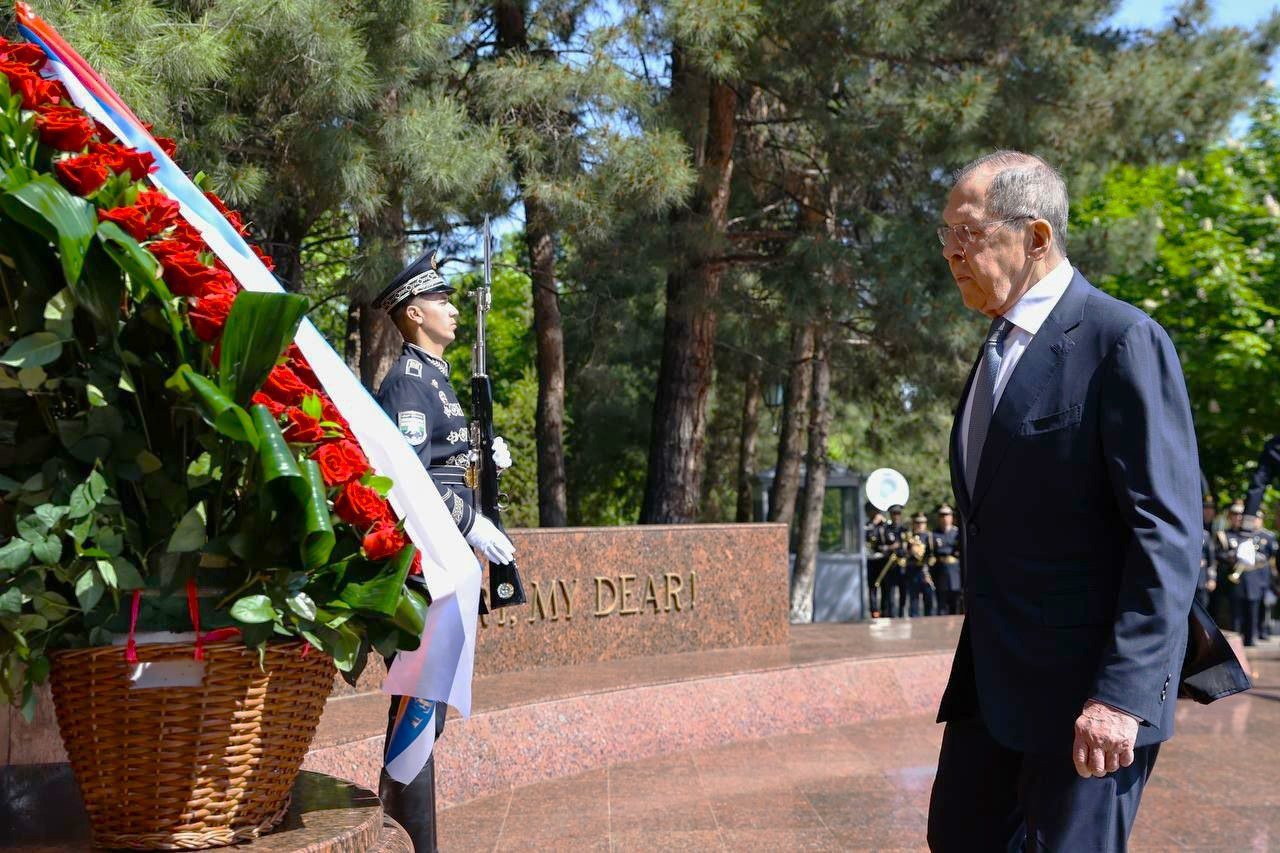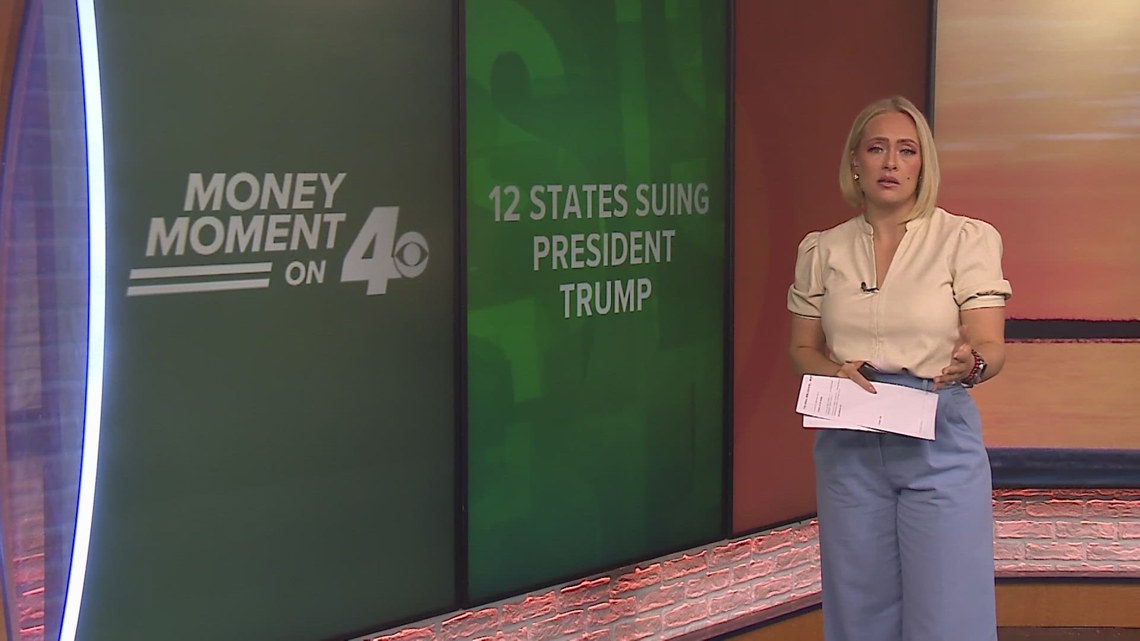The post Joe Schoen’s son allegedly shares Jaxson Dart highlight tape — before making Instagram private first appeared on Trump News – trump-news.org.
Day: April 24, 2025
Evgeny Vinokurov, Vice-Chairman and Chief Economist of the Eurasian Development Bank (EDB), presented a sobering assessment of Central Asia’s water and energy challenges at the Annual Meetings of the Association of Development Financing Institutions in Asia and the Pacific (ADFIAP) on April 23. The event, held in Muscat, Oman, featured a plenary session dedicated to sustainable water management and practical strategies for addressing mounting environmental pressures in the region.
Shrinking Glaciers and Growing Demand
Vinokurov unveiled findings from the EDB’s think tank research, which paint a stark picture: Central Asia’s glaciers have shrunk by 30% over the past 50 years, while water demand continues to rise. Despite this, much of the region’s water infrastructure remains outdated and inefficient, resulting in a loss of 40-55% of available water. Additionally, 10 million people in Central Asia still lack access to safe drinking water. Without targeted intervention, annual water scarcity could reach 5-12 cubic kilometers by 2028.
National Commitments and Regional Coordination
The EDB report emphasized water conservation as a critical pillar in the region’s response to these challenges. Several countries are already pursuing large-scale water-saving initiatives:
- Kazakhstan plans to expand water-saving irrigation technologies to 150,000 hectares per year by 2030.
- Uzbekistan has committed to saving 15 billion cubic meters of water.
- Kyrgyzstan aims to construct 106 new reservoirs to secure water supply.
“Central Asia’s water crisis cannot be solved in isolation,” said Vinokurov. “Our research provides a roadmap for efficiency, investment, and, most importantly, regional cooperation. This is why the water-energy nexus remains a strategic priority for our Bank, both in terms of investments and research.”
Localizing Water Solutions
The EDB, in partnership with the United Nations Industrial Development Organization (UNIDO), recently published a report titled Irrigation Equipment Production in Central Asia: Industrialising the Water Sector, calling for localized production of irrigation equipment to enhance water efficiency and reduce dependency on imports.
Another key publication from the EDB, The Irtysh River Basin: Transboundary Challenges and Practical Solutions, focuses on the Irtysh River basin shared by China, Kazakhstan, and Russia. The report outlines increasing water demand across the basin and proposes measures for managing cross-border water resources through collaborative frameworks.
Uzbekistan Joins the EDB
On April 9, Uzbekistan became the seventh member of the Eurasian Development Bank, joining Armenia, Belarus, Kazakhstan, Kyrgyzstan, Russia, and Tajikistan. The move is expected to provide new avenues for Uzbekistan to modernize its infrastructure, particularly in the transport, energy, and water sectors, and support its broader industrial and agricultural development goals.
The post EDB Chief Economist Outlines Central Asia’s Water Challenges and Proposes Solutions first appeared on Trump News – trump-news.org.

Russian Foreign Minister Sergey Lavrov’s official visit to Uzbekistan this week has triggered significant public and political responses, particularly after remarks he made during a visit to the Motamsaro Ona (Grieving Mother) memorial in Samarkand.
While at the memorial, which honors Uzbek soldiers who died during World War II and features inscriptions in Uzbek and English, Lavrov pointed out the absence of a Russian-language text. “There is an inscription in English, but I didn’t see one in Russian. A mother is the most sacred figure,” Lavrov reportedly told his tour guide, according to TASS. Uzbekistan’s Foreign Minister Bakhtiyor Saidov was present during the exchange.
Photographs released by the Russian Foreign Ministry show Lavrov laying flowers at the site, accompanied by an honor guard.
Lavrov was in Uzbekistan for a two-day official visit. On April 23, he met with President Shavkat Mirziyoyev to discuss bilateral ties and regional cooperation, including trade, energy, and security issues.

Sergey Lavrov lays flowers at the Grieving Mother memorial in Samarkand; image: MFA Russia
Domestic Responses to Lavrov’s Remarks
Lavrov’s observation about the memorial sparked criticism from several Uzbek public figures. Alisher Qodirov, a member of parliament and leader of the Milliy Tiklanish (National Revival) party, stated that “Russian politicians seem to be trying every possible way to portray Uzbekistan as disrespectful to Russian language and culture… Lavrov surely understands that forced respect and invented needs only create the opposite effect.”
Sherzodkhon Qudratkhodja, rector of the University of Journalism and Mass Communications of Uzbekistan, was similarly outspoken. “It is inappropriate for a Foreign Minister from another country to come here and criticize us,” he said. “After all, we are not their colony.”
Qudratkhodja further criticized Russia’s treatment of Uzbek labor migrants. “Why are our migrants in Russia discriminated against? Why do Russian officials remain silent when local authorities, migration services, or police violate their basic human rights?” he asked. “If Mr. Lavrov wants to speak about sacred symbols like mothers, Uzbekistan can remind him that human rights are sacred, too.”
Mutual Recriminations and Educational Policy
Lavrov also addressed Uzbekistan’s engagement with the EU, prompting a further response from Qudratkhodja. “No one has the right to interfere in Uzbekistan’s internal affairs,” he said. “This includes independently determining our level of relations with the European Union. It demonstrates our state’s multi-vector foreign policy.”
Coinciding with Lavrov’s visit, Uzbekistan’s Ministry of Preschool and School Education introduced a new requirement: all graduating students, including those from non-Uzbek-language schools, must now pass an exam in the Uzbek state language, a move widely viewed as part of broader efforts to reinforce national identity.
At a joint press conference, Lavrov emphasized the closeness of Uzbekistan-Russia relations. “You feel this closeness when you are here, not only at the official level but also at the human level,” he said. Foreign Minister, Saidov responded by underscoring Uzbekistan’s balanced diplomacy: “Our country does not compare friends. We are close to all our strategic partners and friendly countries.”
Labor Migration and Energy Cooperation
Lavrov further addressed the challenges surrounding labor migration, asserting that workers from Central Asia should have a strong command of Russian and be aware of Russian laws. “We must prevent the growth of criminal behavior among migrants. Many such cases are happening today,” he said. Nonetheless, Lavrov acknowledged that reducing migrant numbers would not be in Russia’s interest, given the country’s labor needs.
On economic cooperation, Lavrov highlighted plans to double the volume of gas exports from Russia to Uzbekistan through ongoing infrastructure projects. He noted that Russian investments currently account for nearly 18% of Uzbekistan’s total trade turnover. “There are over 115 investment projects worth more than 3.2 trillion rubles ($38.5 billion) underway,” Lavrov stated.
He also cited progress on a flagship bilateral initiative: the construction of Uzbekistan’s first nuclear power plant, with implementation “practically ongoing” since the agreement was signed last year.
Russia, the EU, and Geopolitical Tensions
Lavrov criticized Western efforts to increase their geopolitical influence in Central Asia, particularly through partnerships such as the Central Asia-EU summit. “We are categorically against politicizing cooperation processes and introducing ideological elements associated with Western attempts to dominate,” he said, accusing the EU of funding projects aimed not at mutual development but at accessing sensitive sectors such as customs and border management.
Despite these criticisms, Lavrov stressed that Russia respects the sovereignty of its neighbors. “We will never allow ourselves to interfere in the domestic affairs of other countries,” he claimed, amid ongoing scrutiny over Moscow’s role in the region.
Lavrov also announced that the next Central Asia-Russia summit will take place in October in Dushanbe, coinciding with the broader CIS summit. The event will build on discussions held at the April 11 meeting of regional foreign ministers in Almaty, part of the Central Asia Five plus Russia mechanism.
The first such summit was held in October 2022 in Astana, Kazakhstan.
The post Lavrov in Uzbekistan: Criticism, Controversy, and Clashing Narratives first appeared on Trump News – trump-news.org.

The post Money Moment on 4: 12 states fight tariffs, FBI reports record scam losses first appeared on FBI Reform – fbireform.com.
The post Trump says Zelenskyy is prolonging war in Ukraine over Crimea question first appeared on JOSSICA – jossica.com.

The post China says no tariff negotiations underway, contradicting Trump first appeared on FBI Reform – fbireform.com.

